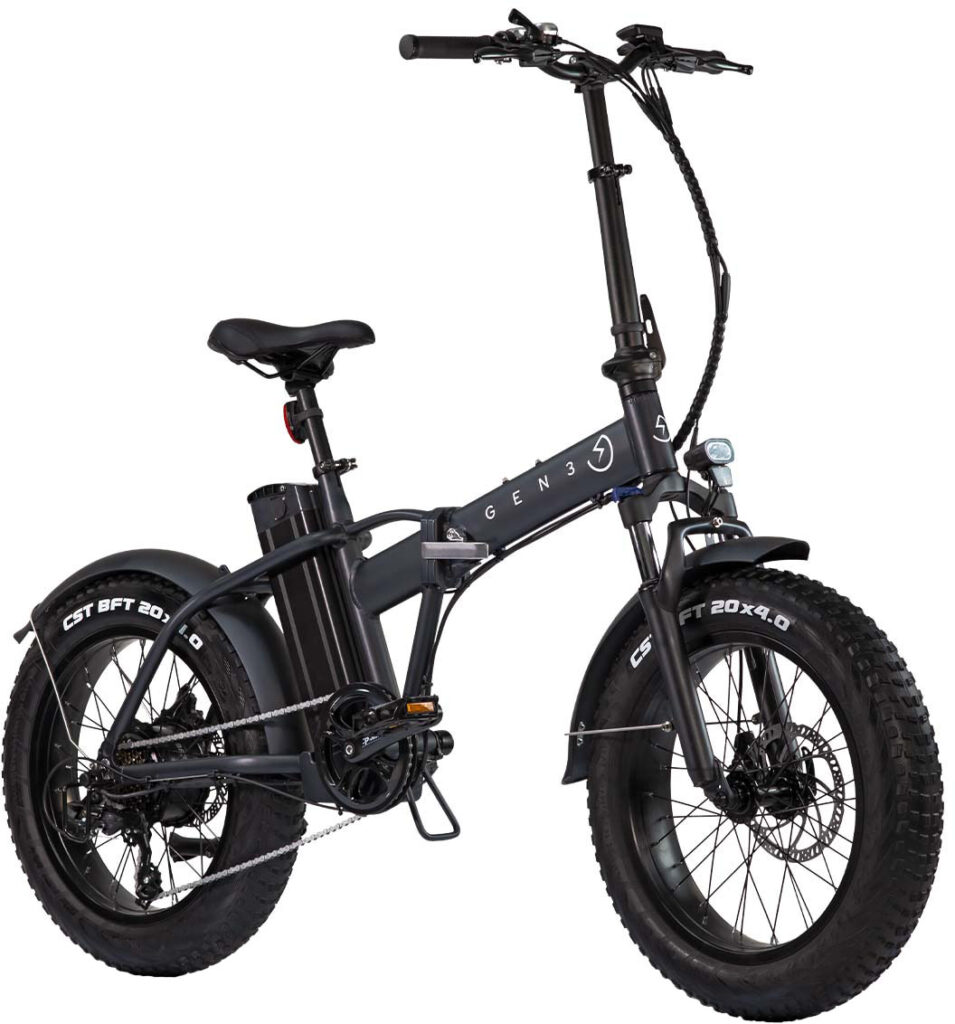
Introduction
In the ever-evolving landscape of urban transportation, innovative solutions are emerging to address the challenges of congestion, environmental sustainability, and personal mobility. One such groundbreaking development is the foldable electric bike, a fusion of cutting-edge technology and practical design that is transforming the way we commute. This article explores the key features, benefits, and the future potential of foldable electric bikes.
The Genesis of Foldable Electric Bikes
Evolution of Electric Bikes
Electric bikes, also known as e-bikes, have gained popularity as a green and efficient mode of transportation. The integration of electric motors into traditional bicycles has made commuting easier and more enjoyable. However, the need for compact and portable solutions led to the birth of foldable electric bikes.
The Birth of Foldability
Foldable electric bikes originated from the desire to create a more versatile and convenient commuting option. With urban spaces becoming more crowded, the ability to fold and carry an electric bike became a game-changer. This innovation allowed riders to seamlessly combine cycling with other forms of transportation, like buses and trains.
Key Features of Foldable Electric Bikes
Portability and Compact Design
The defining feature of foldable electric bikes is their ability to transform into a compact and portable form. Through innovative engineering, these bikes can be folded within seconds, making them easy to carry and store in tight spaces. This portability addresses the last-mile problem, allowing riders to navigate urban environments seamlessly.
Electric Propulsion for Effortless Commuting
Foldable electric bikes are equipped with electric motors that provide pedal-assist or full electric propulsion. This feature not only makes commuting less strenuous but also extends the range of travel. Riders can choose to pedal conventionally, use electric assistance, or rely entirely on the electric motor, offering a customizable and energy-efficient experience.
Lightweight Materials and Durability
To ensure ease of folding and portability, manufacturers use lightweight yet durable materials in the construction of foldable electric bikes. Aluminum and carbon fiber are commonly employed, striking a balance between strength and weight. This ensures that riders can carry their folded bikes comfortably while maintaining the structural integrity of the frame.
Integrated Smart Technologies
Many foldable electric bikes come with integrated smart technologies, including smartphone connectivity, GPS tracking, and performance monitoring. Riders can use mobile apps to customize their riding experience, track their routes, and receive real-time data on battery life and speed. These technological enhancements contribute to a more enjoyable and connected commuting experience.
Benefits of Foldable Electric Bikes
Versatility in Commuting
The primary advantage of foldable electric bikes is their versatility in commuting. Users can seamlessly transition between cycling and public transportation, folding their bikes on buses, trains, or in the trunk of a car. This flexibility makes them an ideal choice for urban dwellers looking for a hassle-free and efficient way to navigate the city.
Environmentally Friendly Transportation
Foldable electric bikes contribute to sustainable and environmentally friendly transportation. By incorporating electric propulsion, these bikes reduce reliance on traditional fuel-powered vehicles, thereby lowering carbon emissions. This aligns with the growing global emphasis on eco-friendly commuting options to combat climate change.
Health and Fitness Benefits
While electric propulsion makes commuting easier, riders can still choose to pedal, providing a healthy form of exercise. Foldable electric bikes offer the perfect blend of physical activity and assisted transportation, promoting an active lifestyle without the intensity of a traditional cycling workout.
Cost-Effective Commuting
Compared to traditional automobiles, foldable electric bikes are a cost-effective commuting solution. With lower maintenance costs, reduced fuel expenses, and often benefiting from government incentives for electric vehicles, these bikes present a compelling economic case for urban commuters.
Future Outlook and Challenges
Growing Market and Innovation
The market for foldable electric bike is expected to grow as more people recognize the benefits of this innovative mode of transportation. Manufacturers are likely to invest in further research and development to enhance the performance, safety, and design of these bikes, fostering a cycle of continuous improvement and innovation.
Infrastructure Challenges
Despite their numerous benefits, foldable electric bikes face challenges related to infrastructure. Cities need to adapt to accommodate the increasing number of micro-mobility solutions, ensuring the availability of secure parking spaces and charging stations for electric bikes. Overcoming these challenges will be crucial for the widespread adoption of this transformative technology.
Conclusion
Foldable electric bike represent a revolution in urban commuting, offering a blend of convenience, sustainability, and innovation. As cities worldwide grapple with issues of congestion and pollution, these compact and eco-friendly transportation solutions are poised to play a pivotal role in shaping the future of urban mobility. As technology advances and infrastructure adapts, foldable electric bikes are likely to become an integral part of the urban transportation landscape, providing a viable and sustainable solution for the modern commuter.
Recommended Articles: Razor’s Commitment to Innovation
Understanding Nakto Electric Bikes